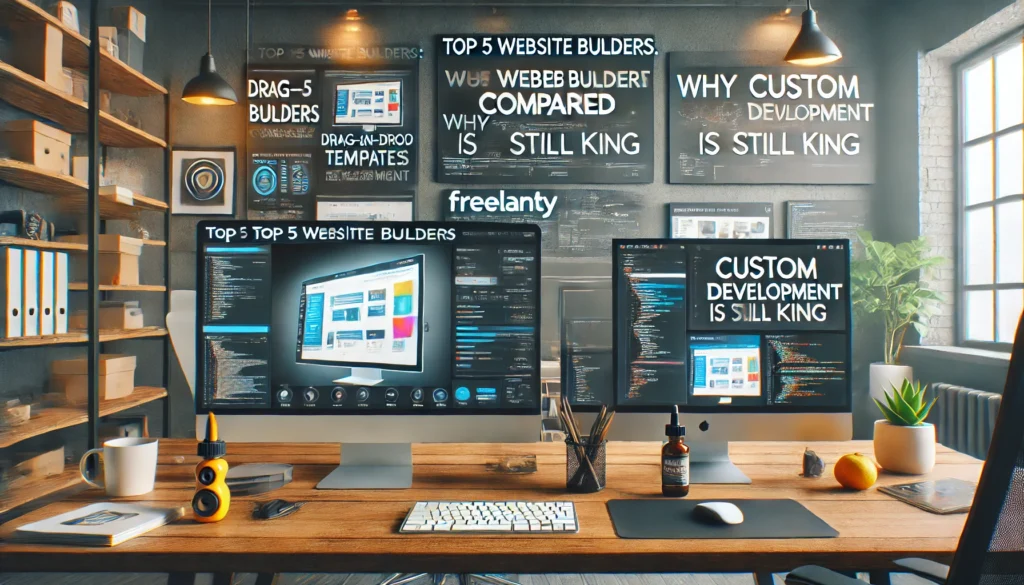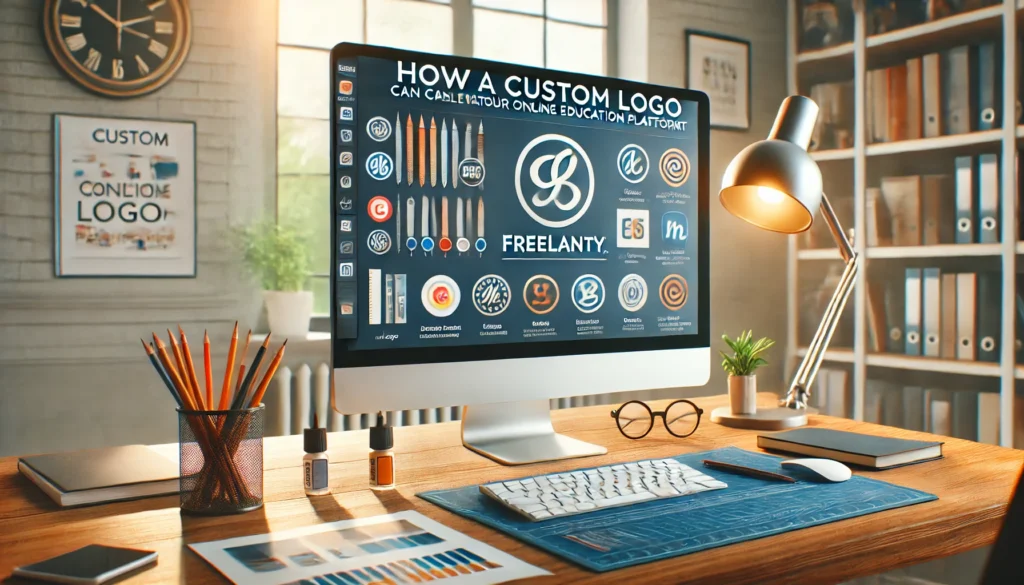







Building a website today is easier than ever. DIY platforms like Wix, Squarespace, and WordPress offer user-friendly tools to create websites without any coding knowledge. They have gained popularity because of their affordability and ease of use. But despite the growing dominance of website builders, custom website development remains the ultimate solution for businesses looking for tailored solutions, scalability, and unique branding.
In this article, we will compare the top five website builders and explain why custom development is still king continues to reign as the best option for long-term business growth and success.
The DIY website builder market is crowded, with several key players offering various features to cater to different types of users. Below are the top five website builders:
Wix is one of the most popular website builders to top 5 website builders globally, known for its drag-and-drop editor that allows users to create websites quickly. It offers hundreds of templates, customizable designs, and various apps to extend functionality.
Squarespace is a favorite among creatives on top 5 website builders due to its sleek, modern templates. It focuses on aesthetics, making it a popular choice for portfolios, blogs, and small business websites.
WordPress comes in two forms: WordPress.com (a website builder) and WordPress.org (a self-hosted CMS). WordPress.org is more flexible, offering endless customization through plugins and themes.
Shopify is a dedicated platform for e-commerce businesses. It provides a comprehensive set of tools for building and managing online stores, including payment processing, inventory management, and shipping options.
Weebly offers a simple, no-frills website builder that is ideal for small businesses and individuals looking for a quick online presence. It’s known for its user-friendly interface.
Top 5 website builders have revolutionized web development by offering easy-to-use platforms that allow anyone to create a website. Let’s explore their main benefits:
Website builders are designed for non-technical users. Drag-and-drop editors, visual builders, and pre-built templates make creating a website as simple as clicking and dragging elements into place.
Most website builders offer affordable plans, with options for free or low-cost websites. This is particularly attractive to small businesses or individuals with limited budgets.
Builders come with a variety of templates designed for different industries, making it easy to get started. Users can quickly choose a template that fits their business needs and tweak it with their own content.
One of the biggest selling points of website builders is that they don’t require coding skills. Anyone can build a functional website without needing to learn HTML, CSS, or JavaScript.
While website builders offer many advantages, they are not without limitations. These drawbacks often become more evident as businesses grow and need more advanced functionality.
Although templates are customizable to an extent, users are generally constrained by the platform’s pre-designed options. Custom functionality, advanced integrations, and unique designs are often limited or require a developer’s help.
Website builders often struggle with slow load times, particularly when more content and media are added. Slow websites can deter users and negatively affect search engine rankings.
Many website builders, especially Wix and Weebly, have SEO limitations. They lack advanced SEO tools, and their structure can make it harder for search engines to crawl and index the content efficiently.
With most website builders, users don’t fully own their websites. If you decide to move to another platform, migrating content can be a tedious, if not impossible, task. Website builders lock users into their ecosystems, making it difficult to transfer a site elsewhere.
Custom website development involves building a website from scratch, tailored specifically to the client’s needs. It includes designing unique layouts, developing bespoke functionalities, and ensuring the site meets the business’s long-term goals. Unlike website builders, custom development offers full control over every aspect of the website, from design to performance.
Custom development is still king because it allows businesses to create unique websites that reflect their brand identity. Every aspect, from layout and color scheme to specific functionalities, can be designed and coded to meet the business’s exact requirements.
Custom websites are built to scale. As your business grows, your website can be easily modified to handle more traffic, integrate new features, or accommodate different user interactions. This is essential for businesses looking for long-term growth.
Custom development gives you full control over your website’s SEO. Developers can optimize site structure, create clean code, and ensure fast load times, which all contribute to better search engine rankings. Additionally, integrating advanced SEO tools is much easier with custom sites.
Custom-built websites can be optimized for speed and performance. Developers can reduce unnecessary code, optimize images, and implement best practices to ensure fast load times, which are crucial for both user experience and SEO.
Custom websites are inherently more secure than DIY platforms. Builders often face security vulnerabilities due to their one-size-fits-all approach. Custom development allows for tailored security protocols, ensuring that sensitive business data and customer information are better protected.
A website builder may be suitable if:
Custom development is ideal if:
Several trends are shaping the future of web development, including:
A growing e-commerce brand initially started with Shopify but quickly outgrew the platform’s limitations in terms of customization and functionality. After transitioning to custom development, the brand saw improved site performance, better SEO results, and a more personalized customer experience within top 5 website builders as custom development is still king.
A small business using Wix for its website found it difficult to scale its online presence. After switching to a custom website, they experienced faster load times, greater flexibility in adding new features, and an improved overall user experience.
To make the best decision, assess the following:
Custom website development involves building a site from the ground up, tailored to specific business needs. This process requires time, expertise, and advanced features that off-the-shelf website builders cannot offer.
Website builders often come with limited customization, slower load times, and SEO challenges. Additionally, they lack scalability for growing businesses and may result in higher long-term costs.
Yes, but migrating from a website builder to a custom solution can be time-consuming and costly. It’s often better to invest in custom development early if you foresee long-term growth.
Custom development allows for better control over SEO practices, such as optimizing page structure, faster load times, clean coding, and better integration of advanced SEO tools.
Shopify is the top choice for e-commerce due to its robust features tailored for online stores. However, for larger, scalable operations, custom development may be a better long-term solution.
Custom development allows for tailored security measures specific to your business needs. Unlike website builders, which can have generic vulnerabilities, custom websites are less susceptible to widespread attacks.
While DIY website builders like Wix, Squarespace, and Shopify offer convenience, custom website development remains the superior choice for businesses looking for scalability, performance, and unique branding in top 5 website builders. Custom-built websites provide more flexibility, enhanced security, and better SEO results, making them the ultimate solution for businesses aiming for long-term growth and success.
If you’re serious about your business’s online presence, investing in custom website development is a smart choice that will pay dividends over time.



Ready to take your project to the next level? At Freelanty, we connect you with talented freelancers who bring your vision to life. Contact us today and discover how we can help you succeed.